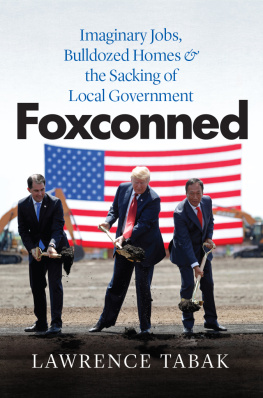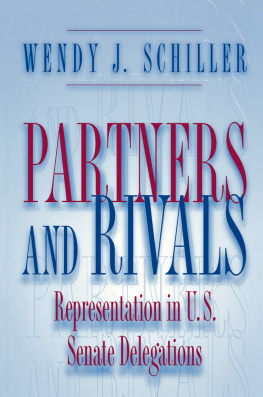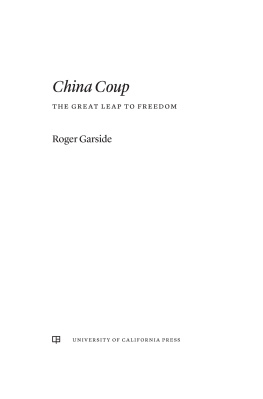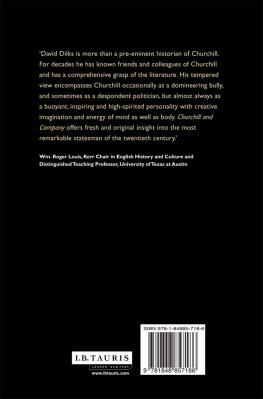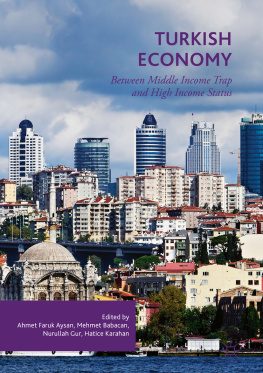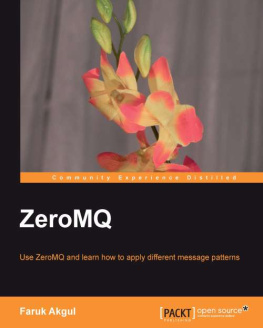First published 2005 by Paradigm Publishers
Published 2016 by Routledge
2 Park Square, Milton Park, Abingdon, Oxon OX14 4RN
711 Third Avenue, New York, NY 10017, USA
Routledge is an imprint of the Taylor & Francis Group, an informa business
Copyright 2005 Taylor & Francis.
All rights reserved. No part of this book may be reprinted or reproduced or utilised in any form or by any electronic, mechanical, or other means, now known or hereafter invented, including photocopying and recording, or in any information storage or retrieval system, without permission in writing from the publishers.
Notice:
Product or corporate names may be trademarks or registered trademarks, and are used only for identification and explanation without intent to infringe.
Library of Congress Cataloging-in-Publication Data
Allies as rivals : the U.S., Europe, and Japan in a changing world-system / edited by Faruk Tabak.
p. cm.(Political economy of the world-system annuals ; v. 27)
Product of the Twenty-seventh Annual Conference of the Political Economy of the World-System held at Georgetown University in April 2425, 2003Acknowledgements.
Includes bibliographical references and index.
ISBN 1-59451-121-7 (hc : alk. paper)
1. World politics1945-1989. 2. World politics1989 3. Economic history1945 4. Hegemony. 5. Peace. I. Tabak, Faruk. II. Political Economy of the World-System Conference (27th : 2003 : Georgetown University) III. Series.
D455.A44 2005
327.091722090511dc22
2005004919
ISBN 13 : 978-1-59451-121-9 (hbk)
ISBN 13 : 978-1-59451-122-6 (pbk)
Designed and Typeset by Straight Creek Bookmakers.
INTRODUCTION:
HEGEMONY, RIVALRY, AND THE TRAJECTORY OF THE WORLD-SYSTEM
Faruk Tabak
I.
There has been a striking resurgence lately in the volume of writings on the nature, structure, and destiny of empires. This, of course, is hardly surprising in light of current developments on the world political stage. The revival of interest in empires is more than likely a byproduct of the desire to chart, in a historically grounded fashion, probable destinies awaiting pax Americana in the coming decades. It is thus the advent of hegemonic decline and the concomitant rise of rivalry that informs the growing literature on empires. Whether or not Washingtons dominion over the world-system, relatively weightless in nature due to its nonterritorial character (especially when compared with that of London), will eventually turn into one of flesh and boneinto an empirehas been the subject matter of many an analysis (Balakrishnan 2003; Howe 2002; Johnson 2004; Mann 2003; Todd 2002). To be fair, the specter of empire does not necessarily forebode a reincarnation of empires pastrecent or distant. However unclear the general contours of this emergent empire may be, some scholars anticipate that if an imperial polity were to gradually emerge from the debris left behind by the withering away of nation-states, it would be unlike any otherwithout an emperor and central command, for onedue in large part to the transnational character of the structures that have come to envelop the world-system since the 1970s (Hardt and Negri 2000).
The specter of empire therefore evokes mixed sentiments, ranging from aversion to enthusiasm, depending on whether one anticipates that the passing of pax Americana would unleash a depressingly all too familiar tale of imperial rivalry or that the transformations ushered in by the passing of the pax would open up a world endowed with a rich inventory of possibilities. However well represented these diametrically opposed scenarios may be in the recent crop of writings on the future of pax Americana, they hardly exhaust, but merely bracket, the possibilities raised in discussions surrounding empires and rivalry.
In determining which of the trajectories highlighted in the literature is more likely to be followed than not, the crucial task has been to excavate the historiography on empires with the express purpose of constructing a comparative frame of reference within which the destiny of U.S. hegemony can meaningfully be plotted. The popularity of this approach emanates from the fact that, even in failure, it is anything but an exercise in futility. Precisely because even when the task of finding historical lineages of or affinities for pax Americana proves futile, the exercise designates and enshrines it as incomparable, if not unique, in its resilience against forces precipitating decline (cf. OBrien 2003). In either case, though, historical surveys that chart divergences or convergences among instances of imperial grandeur and decline have come to lay the historical and theoretical foundations of differing scenarios on if and how U.S. hegemony will unfold in the immediate and not so immediate future.
Tracing the historical pedigree of empires to determine which, among the eligible few, would form the basis of comparison almost invariably extends the temporal compass of these analyses back to no less than the decline of the Roman empire (Amin 1980; Debray 2002; Hardt and Negri 2000). Despite the temporal distance, the challenges posed by Christians of the later Roman empire to the territorial order of the day seem more relevant to the current situation than the dissolution of the later reincarnations of empire, colonial or dynastic. So does Emperor Caracallas declaration, in the face of the impending disintegration of his empire, which endowed every free man, barbarian foremost, a citizen of Rome. Given the drastic nature of the transformations that accompanied the decline of the Roman empire, it goes without saying that those who establish an affinity between the ends of pax Americana and pax Romana anticipate nothing short of the dawn of a new world order.
If the search for comparable genealogies of decline has led some to narrate the current conjuncture in a tense of the deepest past, others, by contrast, have taken a much shorter view. In this approach, the erosion of U.S. hegemony from the late 1970s is compared to the gradual weakening, from the late 1870s, of the command London exercised over the world-economy. This set of writings finds telling parallels (or by the same token, differences) between these two world orders. In the case of




